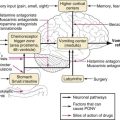
The evolution of online education has significantly altered various academic disciplines, particularly in the area of mental health counseling. As societal demand for mental health services grows, an increasing number of individuals seek advanced training to become effective practitioners.
This trend highlights the urgency of addressing mental health issues while emphasizing the necessity for robust educational frameworks confirming the quality and integrity of training programs. In this context, understanding the implications of accreditation, ethical practices and innovative approaches becomes essential for shaping the future of mental health counseling education.
The Landscape of Online Master’s Programs in Mental Health Counseling
Recent years have witnessed exponential growth in online masters programs in mental health counseling, driven primarily by advancements in technology and shifting societal needs. Institutions have capitalized on this growth, expanding access to education for a diverse range of students who might otherwise face barriers to traditional learning environments.
Flexible scheduling and the availability of online coursework facilitate the pursuit of advanced degrees for working professionals, thus enriching the mental health workforce with a variety of experiences and perspectives. However, this expansion raises essential questions regarding the quality and effectiveness of online programs, necessitating a thorough examination of accreditation processes and standards.
The Role of Accreditation in Guaranteeing Quality
Accreditation serves as a fundamental mechanism for assuring the quality and legitimacy of academic programs. In the context of online master’s programs in mental health counseling, rigorous accreditation standards are critical; the Council for Accreditation of Counseling and Related Educational Programs (CACREP) plays a key role in establishing guidelines that guarantee educational programs meet specific criteria related to academic quality and ethical practice.
As online programs continue to proliferate, confirming adherence to these standards becomes increasingly complex. Establishing effective accreditation processes that adapt to the unique challenges presented by online education is essential for building confidence among stakeholders, including students, employers and regulatory agencies.
Challenges in the Accreditation Process
Numerous challenges exist within the accreditation process for online master’s programs. A significant challenge involves the inconsistency among accrediting bodies, leading to variations in standards and evaluation practices. This lack of uniformity can create confusion for prospective students attempting to identify reputable programs.
Additionally, the rapid pace of technological advancements often exceeds the capacity of accrediting organizations to revise their criteria effectively. Ergo, the dynamic nature of online learning necessitates the development of flexible accreditation frameworks that address emerging educational trends and maintain a commitment to quality assurance.
Ethical Frameworks in Online Mental Health Counseling Programs
The establishment and implementation of ethical frameworks within online mental health counseling programs play a critical role in guiding the conduct of students and faculty. These frameworks delineate the principles governing professional practice and prepare students to address the complexities inherent in mental health issues.
Key ethical considerations, such as confidentiality, informed consent and cultural competence significantly shape the counseling relationship. Programs that emphasize these ethical standards contribute to the cultivation of competent and responsible mental health professionals, ultimately benefiting the communities they serve. Additionally, incorporating ongoing training and discussions around ethics guarantees graduates remain aware of evolving ethical dilemmas in practice, further enhancing their readiness for real-world challenges.
The Importance of Cultural Competence
Cultural competence stands out as a vital component of effective mental health practice, particularly in an increasingly diverse society. Given the varied backgrounds and experiences of students and clients, online programs must prioritize the integration of cultural awareness throughout their curricula.
Equipping future counselors with the skills necessary to engage with clients from diverse cultural contexts enhances the effectiveness of their practice: incorporating case studies, role-playing exercises and supervised clinical experiences into online courses strengthens student understanding of ethical dilemmas and cultural nuances, thus improving their competencies as practitioners.
Innovation in Online Learning
The integration of innovative approaches in online learning has emerged as a critical factor in enhancing educational experiences within mental health counseling programs. Technological advancements, including virtual reality simulations and artificial intelligence, present new avenues for student engagement and the development of practical skills.
These innovative methods can supplement traditional instructional strategies, offering immersive experiences that closely replicate real-world counseling scenarios. The incorporation of such technologies improves learning outcomes and prepares students to adapt effectively to the rapidly changing landscape of mental health services. Furthermore, the use of data analytics in online platforms can provide instructors with valuable insights into student performance, enabling tailored support that enhances individual learning trajectories.
The Role of Faculty in Stimulating Innovation
Faculty members serve as essential catalysts for promoting innovation within online programs. Their expertise in content delivery and pedagogical techniques plays a pivotal role in designing curricula that effectively utilize technology to enhance learning experiences. Access to continuous professional development opportunities confirms educators remain current with emerging trends and best practices in online teaching and mental health counseling.
Moreover, the adoption of innovative teaching methodologies by faculty members can lead to increased student engagement and improved learning outcomes, ultimately contributing to the overall success of online programs. Meanwhile, cultivating a collaborative environment among faculty encourages the sharing of innovative ideas and strategies, further enriching the educational experience for students.
The Impact of Regulatory Changes
Regulatory changes at state and federal levels have significant implications for online master’s programs in mental health counseling—these changes can influence various aspects, including accreditation processes, licensure requirements and the broader framework governing mental health education.
As the demand for mental health services continues to rise, regulatory bodies increasingly emphasize the necessity for educational programs to adequately prepare students for professional practice. This focus on accountability compels institutions to consistently evaluate their curricula and accreditation status, affirming alignment with evolving standards in the field.
The Future of Online Master’s Programs in Mental Health Counseling
The future trajectory of online master’s programs in mental health counseling is anticipated to be marked by ongoing growth and adaptation to changing circumstances. As societal attitudes toward mental health evolve alongside technological advancements, educational programs must remain responsive to new challenges and opportunities.
This responsiveness involves a commitment to embracing innovative teaching methods, strengthening ethical frameworks and upholding rigorous accreditation standards. Collaborative efforts among accrediting bodies, educational institutions and regulatory agencies will play an integral role in shaping the future landscape of online education in mental health counseling.
Final Thoughts
The paradigm shift observed in online master’s programs in mental health counseling encompasses challenges and opportunities that warrant careful consideration. A comprehensive reevaluation of accreditation processes, ethical frameworks and innovative teaching practices hold the potential to enhance educational quality and effectively prepare future counselors for the complexities of contemporary practice.
The increasing demand for mental health services highlights the critical need for well-prepared professionals capable of addressing the diverse needs of their clients. Ongoing examination of these interrelated themes will prove essential for ensuring online programs remain effective, relevant and responsive to the needs of students and the communities they serve.





